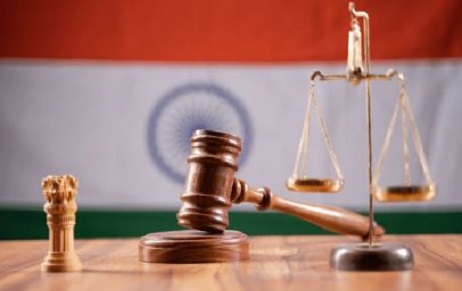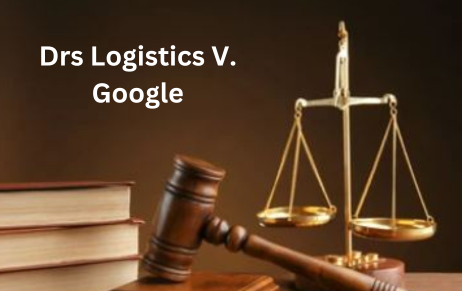ABSTRACT The project employs doctrinal research methods, i.e. secondary research which involves writing on basis…
Thank ‘God’! It Is Not Trademarkable: Analysing the Monopoly over the Names of Gods and Holy Books
Rumors have it that Hindus have 33 Crore Gods. From an IPR perspective, it simply means that there are 33 crore names that are in a fix as potential trademark names. The recent judgment of Bombay High Court in the case of Freudenberg Gala Household Product Pvt. Ltd. v. GEBI Products Ltd has opened the Pandora’s box of whether names of Gods should be registered as trademarks. The problem also lies in the trademarking names of Holy Books like Ramayana and Mahabharata. Claiming monopoly and enjoying exclusivity over such names poses a threat to the commoners as well as the devotees.
The names of Holy books and Gods are considered good luck and show positive meaning, and thus are preferred by many while associating brand names. For example, ‘Ganesha’ means auspicious and good start whereas ‘Laxmi’ is associated with good fortune. These names do not possess distinctiveness in itself and to acquire secondary distinctiveness, it has to draw commercial magnetism so that the brand name and business become synonymous in the public mind. There has to be some kind of mental association in the minds of the purchaser. However, the registration of such names as word marks should ideally be refused as names of Gods like Laxmi or Ganesha raise the question of distinctiveness. Mostly the courts have held that it is difficult to get distinctiveness on God’s name. The consumer has yet not been able to associate any brand with that of God’s name. However, that remains a question of fact whether a common word like that of God’s name has acquired secondary meaning or distinctiveness and thus will depend from case to case.
The problem lies not only in the names of Gods and Goddesses but also in using the names of Spiritual leaders. Denial of exclusivity over the names of spiritual leaders has been reasoned as no commercial monopoly can be allowed over a religious figure. Italian Supreme Court in the case of George V. Entertainment S.A. and George V. Records E.U.R.L. v. Buddha CafèS.r.l.(Decided on 26 January 2016, No. 1277) denied registration of Buddha as a tradename of a coffee café in Milan. The Applicants argued that Buddha was distinctive as a tradename and had no connection with coffee; hence was an arbitrary fanciful name. The Court held that the tradename calls out religion but also directs a way of life.
Another situation that arises is when the names of Gods are used for the registration of products that are condemned or bad in nature. In the case, of A.T. Raja, Madras v. Mangalore Ganesh Beedi Works, the trade name used on the pack of cigarettes was ‘Ganesha’. The case contended on two arguments. Firstly, that the product was not good in nature and is vice in Hinduism. Secondly, people would use the pack with pictorial depiction of Ganesha and throw it in the bins after use. The Allahabad High Court rejecting the contentions held that nothing was shown to suggest that smoking hurts religious susceptibilities and also observed that photographs of Gods are used in wedding invitation cards by Hindus. Once the purpose is over, the cards are also thrown in the dustbins. The progressive interpretation of the Court was well appreciated. The Court had used judicial wisdom and not believed in a literal interpretation of Section 9 (2)(b) of the Trademark Act.
Practically speaking, the image of God and Goddesses can only be used as Intellectual Property by someone who is most likely not traceable today. Trusts like that of Sabarimala Temple are mere custodians of the deities. From the cases discussed in the paper, it is clear that the Courts have taken a strict stand on handing exclusivity of God’s name as that would prohibit the devotees and the commoners from using the name. What is not being discussed currently by the Indian Courts is the implications of registering names of Gods, Spiritual leaders, and Holy books. The decision is only settled when there is any other party that opposes the usage of such names. The only exception being Kerala High Court in the Sabarimala case who had suo-moto initiated proceedings. However, the Court dismissed the proceedings. It is high time that the Registry takes into action the above-discussed ratios before allowing and refusing such trade names.
The Courts are also not examining the Constitutional aspect of the rights enjoyed by the Trusts on such registration of names. One more question that remains unanswered is on the limit of inclusion of class whose names can hurt the religious susceptibilities. Can we not trademark the names of demigods, saints, kings, and creatures from all mythological stories too? If such trademarks are allowed in the future, then ‘God’ knows how many popular images in the public domain will be allowed to enjoy exclusivity in the hands of proprietors.
Author: Ms. Esha Himadri, an intern at Khurana & Khurana, Advocates, and IP Attorneys. Can be reached at swapnils@khuranaandkhurana.com



